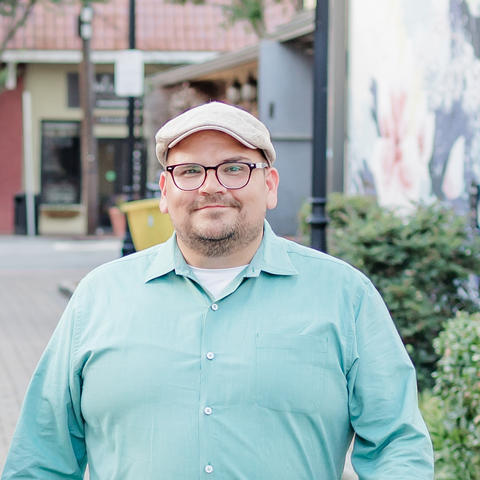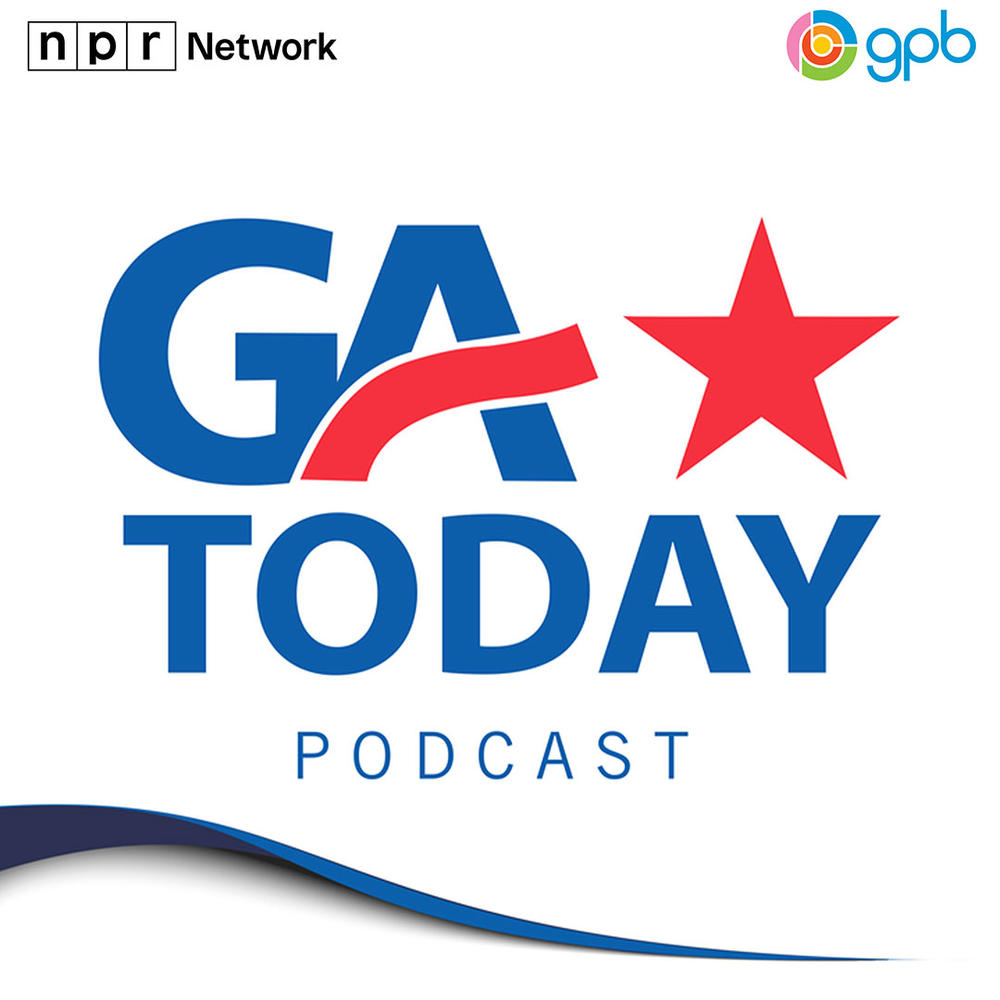
Section Branding
Header Content
Georgia Today: Midtown Atlanta shooter faces charges; sea turtles nesting; feral horses in danger
Primary Content
On the Thursday May 4 edition of Georgia Today: Midtown Atlanta shooter, Deion Patterson, faces charges; sea turtle nesting season has begun; feral horses on Georgia’s Cumberland Island National Seashore may not be there much longer

Orlando Montoya: Hello and welcome to the Georgia Today podcast from GPB News. Today is Thursday, May 4th. I'm Orlando Montoya. On today's episode, the man accused of the shooting in midtown Atlanta yesterday is facing murder charges. Sea turtle nesting season has begun in coastal Georgia, and the icon of Georgia's Cumberland Island National Seashore may be going away. These stories and more are coming up on this edition of Georgia Today.

Orlando Montoya: The suspect in the mass shooting in Atlanta that left one woman dead and four others injured, has been charged with one count of murder and four counts of aggravated assault. Deion Patterson waived his first court appearance this morning after police say he opened fire in a midtown Atlanta medical office yesterday. Workers and others in the bustling commercial district took shelter for hours during the manhunt, which ended in Cobb County. The police chief there, Stuart VanHoozer, last night praised the work of law enforcement officers, partner agencies and new technology.
Stuart VanHoozer: We have a DOT that gave us information and access to cameras that we did not have previously, and those cameras proved extremely helpful. That is where we got the precise location of the building that he walked into.
Orlando Montoya: Police also used social media tips and a resident's 911 call to track Patterson.
Orlando Montoya: The Atlanta public school system soon will have its own fleet of electric school busses, thanks to federal funding. GPB Amanda Andrews explains.
Amanda Andrews: APS received nearly $10 million through the Infrastructure Investment and Jobs Act for 25 electric school busses. The school system is one of 15 districts in the state and 389 nationwide selected to receive funding. U.S. Congresswoman Nikema Williams, who represents the area, attended the announcement and highlighted the benefits clean energy will have on her constituents. Busses are expected to be up and running by the beginning of the 2024 school year. For GPB News, I'm Amanda Andrews.
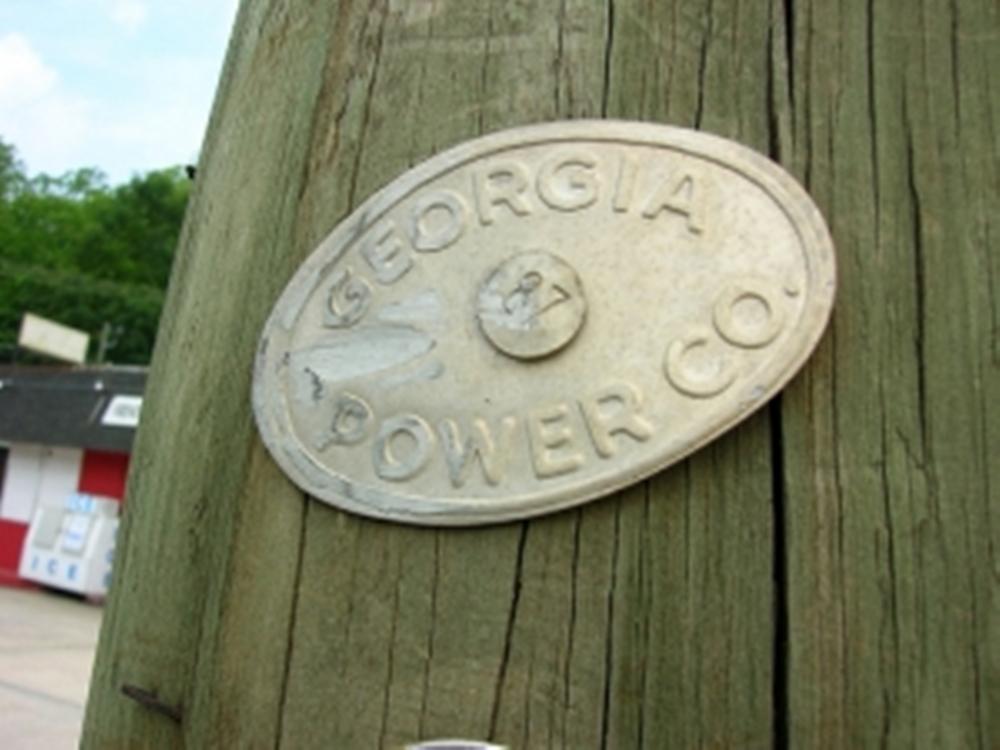
Story 3
Orlando Montoya: A parade of expert and citizen witnesses asked state utility regulators this week not to let Georgia Power recover 100% of higher fuel costs incurred by the company over the last couple of years from customers due days of public hearings at the Georgia Public Service Commission ended yesterday. The PSC is set to vote on May 16th on a fuel rate case that could have the average residential customer paying $16 more per month over a three year period beginning in June.
Story 4
Orlando Montoya: A federal jury has awarded a Columbus area couple $135 million for damages to their property by a Tennessee based solar company and its contractor. The award against silicon branch and contractor IEA came after the couple near Lumpkin claimed the company didn't install adequate erosion controls at their solar panel site. Lawyers said that polluted their land. Silicon Ranch plans to appeal.
Story 5
Orlando Montoya: Wellstar Health System is pledging to spend nearly $800 million over ten years in its merger with the Augusta University health system, That's one of the details in a merger agreement submitted to Georgia Attorney General Chris Carr for a legal review. The merger announced in December became a political football during this year's General Assembly, in part because of Wellstar's closure last year of its Atlanta Medical Center. The documents pledged, well, start to building a Columbia County hospital and continuing to operate the Roosevelt Warm Springs Rehabilitation and Specialty Hospital at current levels, among other commitments. The University System Board of Regents approved the merger in March.
Story 6
Orlando Montoya: Bibb County leaders will use American Rescue Plan funds to help expand primary care services in Macon after a vote this week. GPB's Sofi Gratas has more on the clinic and pharmacy set to open next year.
Sofi Gratas: On Tuesday, the Bibb County mayor and commission signed off on a quarter million dollars for first choice Primary Care, a nonprofit medical system founded in Macon that sees patients regardless of their ability to pay that money. And additional grants will help with the construction of the $2 million project in an underserved neighborhood. First Choice CEO Katherine McLeod says big box pharmacies have abandoned the area.
Katherine McLeod So there's no pharmacy anywhere near the Houston Avenue neighborhood.
Sofi Gratas: Leaving gaps for people with high rates of chronic disease. Along with the pharmacy, McLeod says the new clinic will also house four primary care physicians and offer mental health services. First Choice has six clinics in Macon and Warner Robins, including one downtown. For GPB News, I'm Sofi Gratas in Macon.
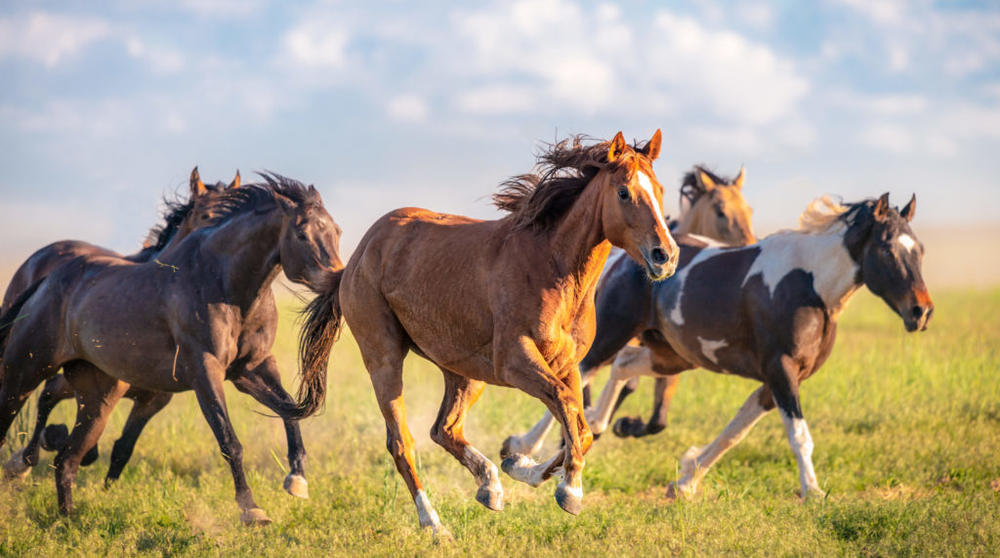
Story 7
Orlando Montoya: Georgia's Cumberland Island National Seashore is home to the U.S. Atlantic coast's only completely unmanaged population of wild horses. About 150 feral horses roam the island. Tourists visit Cumberland to snap pictures of them. Nearly every website, brochure and media about the island features images of the iconic animal. But my next guest wants to remove them. He has writer and scientist Will Harlan, one of the plaintiffs in a lawsuit challenging the National Park Service's hands off approach to Cumberland Island's wild horses. Well, thanks for coming to the program.
Will Harlan: Great to be here.
Orlando Montoya: First off, let's start with the horses themselves. How did they get to the island and why have they become such a part of Cumberland's mystique?
Will Harlan: Well, the horses were brought to the island fairly recently by island families. The Carnegie and Rockefeller families essentially abandoned them and left them as feral animals to roam, much as you might hear of people leaving their feral dogs abandoning them in the woods. They are a non-native feral animal that is not part of the island's mystique. I think they have been promoted by some to be part of that, but in fact they are harming the island and they are starving and emaciated. Look, I love the horses. I've been to Cumberland Island for four decades and the horses are beautiful. But when you look closely at the horses on Cumberland Island, they are suffering. And for their sake and the island's sake, they need to find a new home.
Orlando Montoya: And we talk about wild horses. I think that word wild conjures up ideas of freedom and nature existing in an idyllic state. But you argue that, as you say, things are anything but free and idyllic for the horses of Cumberland Island. What is wrong with wild horses there?
Will Harlan: I wish that romantic, idealized vision were true, but unfortunately these horses are in severe malnourishment and are really struggling. Their foals often do not survive. I've seen carcasses of dead horses stacked behind the dunes. This is cruelty to these animals.
Orlando Montoya: What about their impact on protected plants and animals?
Will Harlan: So one of the main things they eat are the sea oats, which are state protected in Georgia. We're not allowed to touch the sea oats, but the horses are regularly consuming and trampling these sea oats that are essential. Or the dunes they hold the dunes together. Unfortunately, the feral horses are consuming sea of it's primarily, and that's having serious harm to the beach and the critical habitat of these endangered species, including the loggerhead sea turtle and the piping plover.
Orlando Montoya: We know that the hogs I've done a lot of stories on the hogs. They're essentially like the hogs, are they not?
Will Harlan: They're exactly like the hogs. The feral hogs have ravaged the island. And as a result of litigation several decades ago now, the National Park Service implemented measures to reduce feral. Hog populations and protect nesting loggerhead sea turtles. So that was a positive step of acknowledging that the harm and impact that feral animals can do to the island.
Orlando Montoya: The National Park Service manages wild horse populations on Assateague Island, off the coast of Maryland and Virginia. What makes the Cumberland horses any different?
Will Harlan: In the case of Assateague, they adopt the horses out. They have a robust program of veterinary care. They have monitoring of the horses on Cumberland Island. There is no veterinary care. There is no research or monitoring of these of these feral horses. So there is a very big difference.
Orlando Montoya: And some of the conditions that the horses live in that you and others describe are quite gruesome. But is there any solution short of complete removal that could preserve them on the island but still improve their lives?
Will Harlan: Well, I think this will be a phased approach so that it isn't as traumatic to the horses. There are a lot of options. And how that's that's implemented contraception, adoption off the island. So there are implementable solutions to make the transition easier. And I'll leave it up to the equine experts on what is the most feasible and and humane way to to implement those contraceptive measures and then adopting horses onto the mainland for for folks who may want to have a feral horse and that can provide the veterinary care that is needed for these horses.
Orlando Montoya: Now, the National Park Service often weighs public opinion in their decisions. Is this a case where people expect horses there? So the Park Service is listening to what the public wants?
Will Harlan: I don't think that's the case at all. I think there were was widespread support for removing the horses when this was originally proposed more than a decade ago. And then there was political intervention that prevented that from happening. But I think the public, when they know about the condition of these starving, emaciated, suffering horses, would wholeheartedly support removing them from the island and ensuring they get the veterinary care that they need.
Orlando Montoya: Finally, I mentioned that you're a plaintiff in the case. Another listed plaintiff is, quote, the horses of Cumberland Island, meaning that you believe the horses themselves have legal standing to file a federal lawsuit and be represented in court. I have to ask you about that. How is that possible?
Will Harlan: These horses have intrinsic value. You asked earlier about their cultural value that they have. They have intrinsic value. And this litigation recognizes their value as living beings. And we think it's important to recognize and acknowledge that value. And they certainly have standing here and that they're the ones that are suffering the most.
Orlando Montoya: Couldn't the case be thrown out of court because horses don't have standing in courts? I don't know.
Will Harlan: Well, there's there's certainly legal precedent for other species to have standing. But regardless, there are four additional plaintiffs in addition to the horses, including myself, Carol, rushed to show the Georgia Equine Rescue League and the Georgia Horse Council. So that speaks to the importance of and the recognition of the horses. Help is at the center of this discussion, as well as the health of the island.
Orlando Montoya: Well well, Harlan, thank you very much for talking with me about this. We'll certainly follow it as it goes to the courts. I appreciate your time.
Will Harlan: Thank you very much.
Orlando Montoya: National Park Service officials have 60 days to respond in court to the lawsuit filed last month in published statements. They argue that the horses have adjusted to Cumberland Island and that their conditions range from good to moderate. The officials told the Current that, quote, At no time during the last 41 plus years has there been a significant die off.
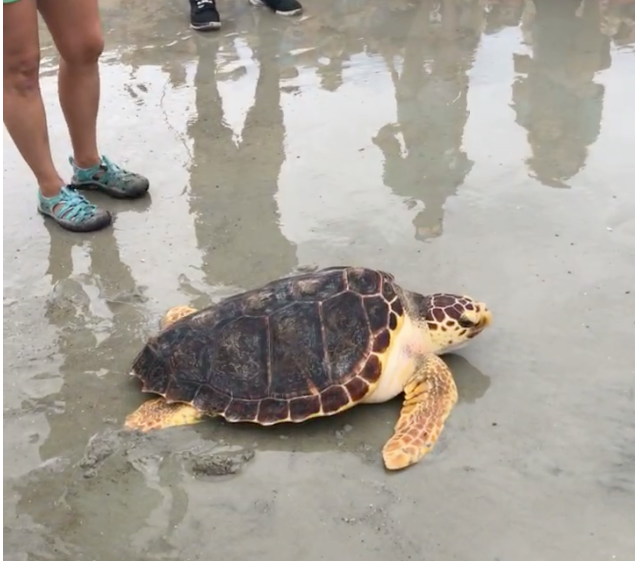
Story 8
Orlando Montoya: And speaking of the coast, it's time for sea turtle nesting season. It's officially underway in coastal Georgia. GPB's Benjamin Payne has that story.
Benjamin Payne: It all began with a single loggerhead nest found Monday on Blackbeard Island, about halfway between Savannah and Brunswick. That's much farther north than usual. Typically Cumberland Island, some 40 miles south near the Georgia Florida border, sees the first nests of the year of the state. Mark Dodd is a wildlife biologist at the Georgia Department of Natural Resources. He says the journey for sea turtle moms is no walk in the park.
Mark Dodd: It's a really big investment in protein to come here to the Georgia coast nest 5 to 7 times, produce 115 eggs in each nest. And so it takes a while to get back in reproductive condition. And so most females take at least one year off, but sometimes two, three, four years off.
Benjamin Payne: Dodd says computer modeling of the natural ebb and flow of loggerhead reproduction suggests a low to medium turnout for Georgia's loggerhead nesting season for GPB News, I'm Benjamin Payne.
Orlando Montoya: And that's it for today's edition of Georgia Today. If you'd like to learn more about these stories, visit GPB.org/news. We always have the latest updates there. And if you haven't yet hit subscribe on this podcast. Take a moment to do it right now. That keeps us current in your podcast feed. If you have feedback, email it to us at GeorgiaToday@GPB.org.
I'm Orlando Montoya. We'll see you tomorrow.
___
GPB's Georgia Today newsletter hits your inbox on Tuesdays, Wednesdays and Thursdays with top stories from around the state featuring news, politics and more. Subscribe here.

